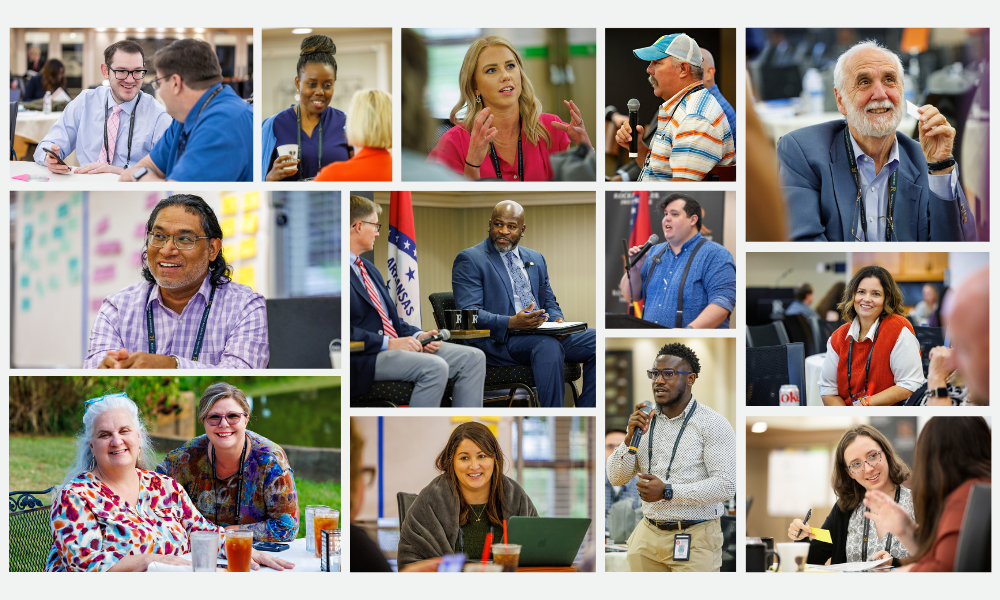At the Institute, we echo Gov. Winthrop Rockefeller’s belief that “every citizen has the duty to be informed, to be thoughtfully concerned, and to participate in the search for solutions.” With this guiding principle, we are proud to introduce Civic Arkansas.
What is Civic Arkansas?
Civic Arkansas is our latest initiative to amplify civic engagement across our beloved state. The insights from the Arkansas Civic Health Index Report drive the creation of this program. Until now, no published report has described the conditions of civic and political engagement in Arkansas.
Defining “Civic Health”
The National Conference on Citizenship (NCoC) defines civic health as the ability of communities to organize and solve public problems. The US Department of Health and Human Services includes “civic health” or civic participation as a component of their Healthy People 2030 goals, linking greater civic involvement to improved self-reported health.
Understanding the Arkansas Civic Health Index Report
Developed in collaboration with the NCoC, the Arkansas Civic Health Index Report comprehensively evaluates civic engagement in our state. This report, funded by Engage Arkansas and executed by the Clinton School of Public Service, assesses various aspects of civic participation, including voting, volunteerism, community involvement, and charitable giving.
Our Findings and Their Implications
The report highlights that Arkansas can enhance its participation in community activities such as voting, volunteering, collaborating, and donating to causes. While Arkansas currently ranks low in these areas compared to other states, the report also emphasizes our strengths. These strengths include neighborliness, charitable giving, community membership, and the time spent with family and friends.
The mission of this new program is to leverage these strengths and address identified weaknesses, aiming to foster a more civically engaged Arkansas.
Our Plan of Action
Following the report’s advice, we want to encourage civil conversations about important topics, and we have the perfect process to do so — the Rockefeller Ethic. We invite you to join us in making Arkansas a state known for its robust civic engagement.
The Institute has begun scheduling local listening sessions as part of this program’s next phase. We are excited to move into this phase of our work, seeking to learn directly from Arkansans. We will start with listening sessions in May at the following locations:
- May 9, 2024: Clinton (Van Buren County)
- May 21, 2024: West Memphis (Crittenden County)
- May 28, 2024: Arkadelphia (Clark County)
- May 30, 2024: Conway (Faulkner County)
Please submit the form below to be notified of opportunities to participate in listening sessions, dialogues, or future in-person programming at the Institute.
"*" indicates required fields
Contact Person


